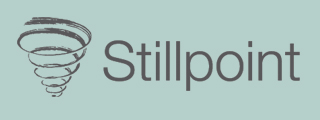
Book An Appointment
Call 01225 460 106 or book an appointment online.
What is Acupuncture?
Acupuncture has been practiced in China and other East Asian countries for over 2000 years. Although often described solely as a means for pain relief, acupuncture can treat all kinds of illnesses that affect a wide range of people of all ages – adults, elderly people and even children.
According to the traditional Chinese philosophy of yin and yang, our health is dependent on the body’s warming, motivating energy – ‘qi’ – moving in a smooth, balanced and harmonious way through a series of channels beneath the skin, in harmony with and nourished by blood and fluids (yin), which are in turn moved by the qi (yang). The theory of the acupuncture channels is one of the most significant discoveries of Chinese medicine: they serve as a dynamic web that unites the human body as an integrated whole. When there is disharmony in that web the smooth flow of qi is disrupted, which affects the body and mind. By inserting very fine needles into points along these channels an acupuncturist can stimulate the body’s own healing response and help restore natural balance – reversing the spiral of disharmony and setting the body back on the road to recovery and good health.
Who has Acupuncture and Why?
Many different people, male & female, young and old come to an acupuncturist in the first instance for help with specific symptoms or conditions. These might include anxiety states, arthritis, asthma, back pain, circulatory problems, depression, facial paralysis, fibrositis, headaches, high blood pressure, indeterminate aches and pains, infertility, menstrual problems, migraines, pregnancy and childbirth conditions, rheumatism, sciatica, skin conditions, ulcers and many, many more. Acupuncture is a safe treatment. It has proved to be effective in pregnancy management and preparation for childbirth as well as for people trying to overcome addictions such as those related to smoking, alcohol, food or drugs. Some people have regular acupuncture as a preventative measure to stay well, or because they feel unwell in themselves without being ‘ill’ according to orthodox medical tests. Acupuncture can also be used alongside conventional medicine in the treatment of acute and chronic disease, and acupuncture and herbal medicine can also help cancer patients receiving chemotherapy or radiation treatment.
The benefits of acupuncture frequently include more than just relief from a particular condition. Many people experience increased energy levels, better appetite and sleep as well as an enhanced sense of overall functioning and well-being.
What Does Acupuncture Feel Like?
Acupuncture needles bear little resemblance to the hypodermic needles used in injections and blood tests. Acupuncture needles are much finer and are not hollow; often the patient does not even feel them inserted. The sensation induced when the needle contacts the qi below the skin is often described as a tingling or a dull ache; this shows that the acupuncture point has been successfully activated. The sterile needles are used once only and then safely disposed of.
How many Treatments will I need?
Each person and condition is different and therefore the number of treatments required depends on the individual. Sometimes one or two treatments are all that is necessary, whilst at others ongoing treatment for some months is needed for substantial change. Preparation for childbirth preferably requires three treatments prior to labour, and perhaps two or three more if the baby is overdue.
What Does the Acupuncturist do?
The acupuncturist discerns the underlying patterns of disharmony by taking a case history, looking at the tongue, feeling the pulses on both wrists and pressing points along the channels. They then work to restore physical and emotional well-being by inserting needles. Some practitioners also use acupressure, cupping, moxibustion and/or herbal medicine according to the patient and their condition.
If you would like to know more, please ask reception to put you in touch with one of our acupuncturists.
Book An Appointment
Call 01225 460 106 or book an appointment online.
